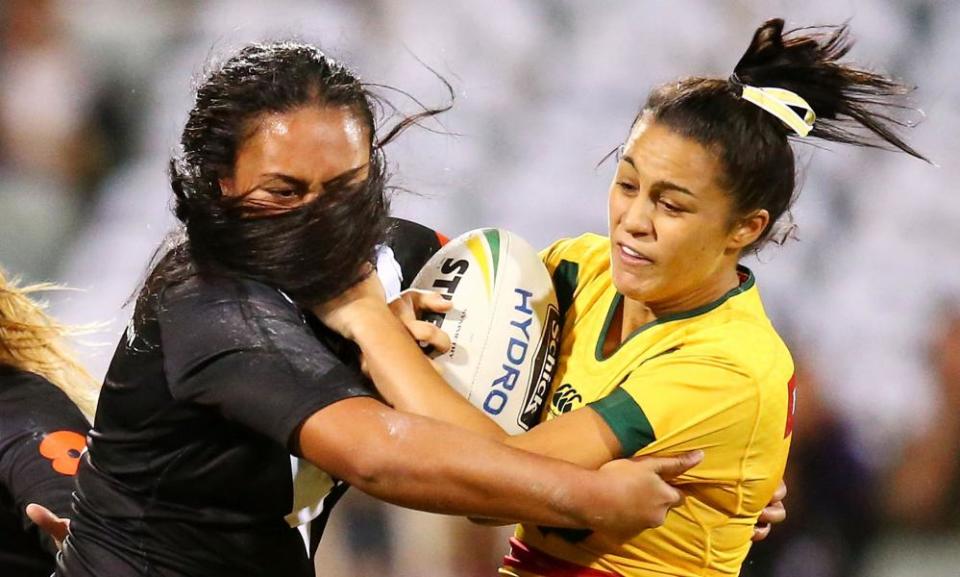England looking to blaze a trail at Women’s Rugby League World Cup

There was considerable outrage in New South Wales when the organisers of the 2017 Rugby League World Cup largely snubbed the sport’s undisputed capital, Sydney, handing the city only two group games due to the local government’s reported lack of financial commitment.
However, while this weekend’s quarter-finals take place in Darwin, Christchurch, Melbourne and Wellington, there will still be a significant rugby league presence in Sydney over the next fortnight as the world’s best women players do battle in their own World Cup, that tournament’s fifth edition.
While some of the men’s teams have attracted criticism from their own players about the low pay-rates for playing in their World Cup, not even the biggest and best teams in the women’s tournament offer their players any payment to represent their country. They do it for the love, not the money – an attitude which comprises the backbone of women’s rugby league at present. “I’d have paid my own way out here if I’d had to,” says Danika Priim, the Bradford forward who was only convinced to try her hand at switching to rugby league from union two years ago after being asked to give it a go.
“I’m a PE teacher and yeah, I can’t lie, I’ve had to give up my wages and take unpaid leave from work for this,” she says. “Who wouldn’t, though? It’s the chance of a lifetime – it’s not ideal having to take time off work … but the girls are well supported by their employers, and the school have been great with me.”
Priim is an integral part of an England side who, much like their male counterparts, are looking to buck the Anzac trend at the World Cup. The first three tournaments were won by New Zealand before Australia won the event for the first time in 2013. But women’s rugby league is quietly growing in the UK. This year, Bradford won the first-ever Women’s Super League – a competition which will expand in 2018 when big names such as Widnes, Leeds and Wigan join the women’s revolution.
“The sport has gone from zero to hero in such a short space of time,” Priim says. “We’re trying to bring things in line with the men as much as possible, and we’re getting there.”
The growth of the game in this country gives Priim belief that England can go all the way at this World Cup. To do so, they will have to not finish bottom of a pool that also contains Australia and the Cook Islands.
Pool B features New Zealand, Papua New Guinea and, for the first time, Canada. Sydney hosts all the group games and both semi-finals.
There is quite the prize awaiting England should they reach the final, though. Crowds do not run much higher than the hundreds in the Women’s Super League at present; it’s even unclear how high the pick-up in interest will be for the World Cup in Sydney given their rejection of the men’s tournament.
But the final will be played as part of a double-header with the men’s World Cup final in Brisbane on 2 December, in front of more than 50,000 people.
“That’s the aim for us,” says Priim. “It’s an exciting prize awaiting us if we can get the job done – an England-Australia double-header would be nice, wouldn’t it?”
England’s campaign begins on Thursday against PNG, followed by games against the Jillaroos on Sunday and the Cook Islands next Wednesday. Should they reach the final, they would match the England women’s rugby union team, who lost their own World Cup final to New Zealand in the summer. The union side received mainstream media attention and a primetime TV slot – the rugby league side are unlikely to receive the same level of publicity, but it would certainly pique the interest of many should they get that far.
“There’s no pay but we’re setting the platform for future years, I think,” Priim adds. “We’re a bit of an unknown quantity, both the team and the sport in this country. Hopefully we can change that over the next few weeks.”

 Yahoo Sport
Yahoo Sport 





































